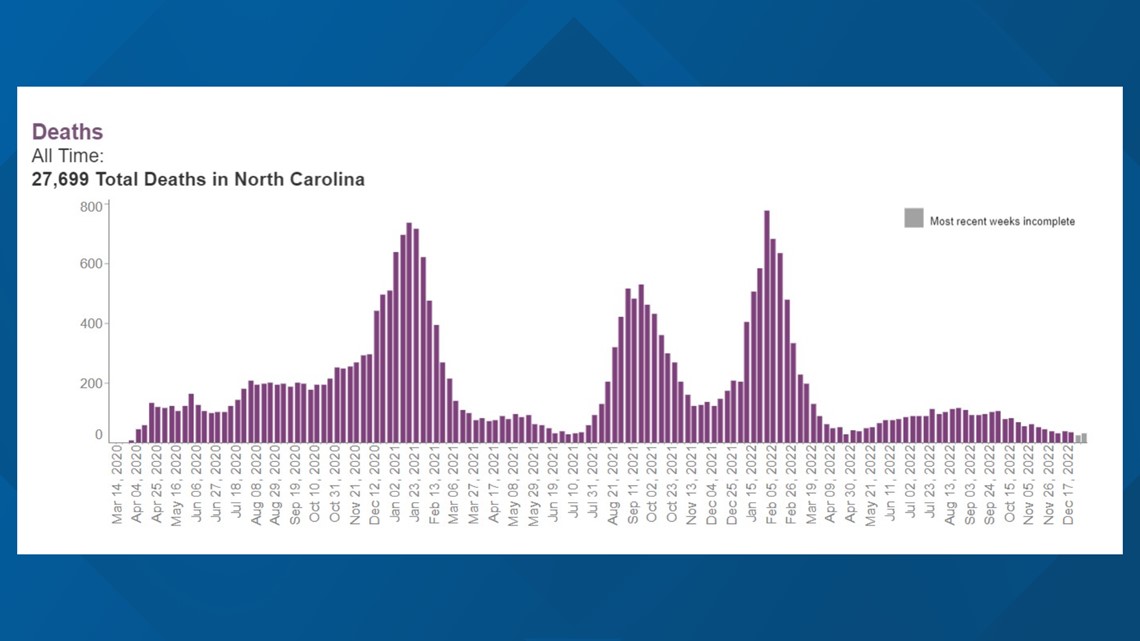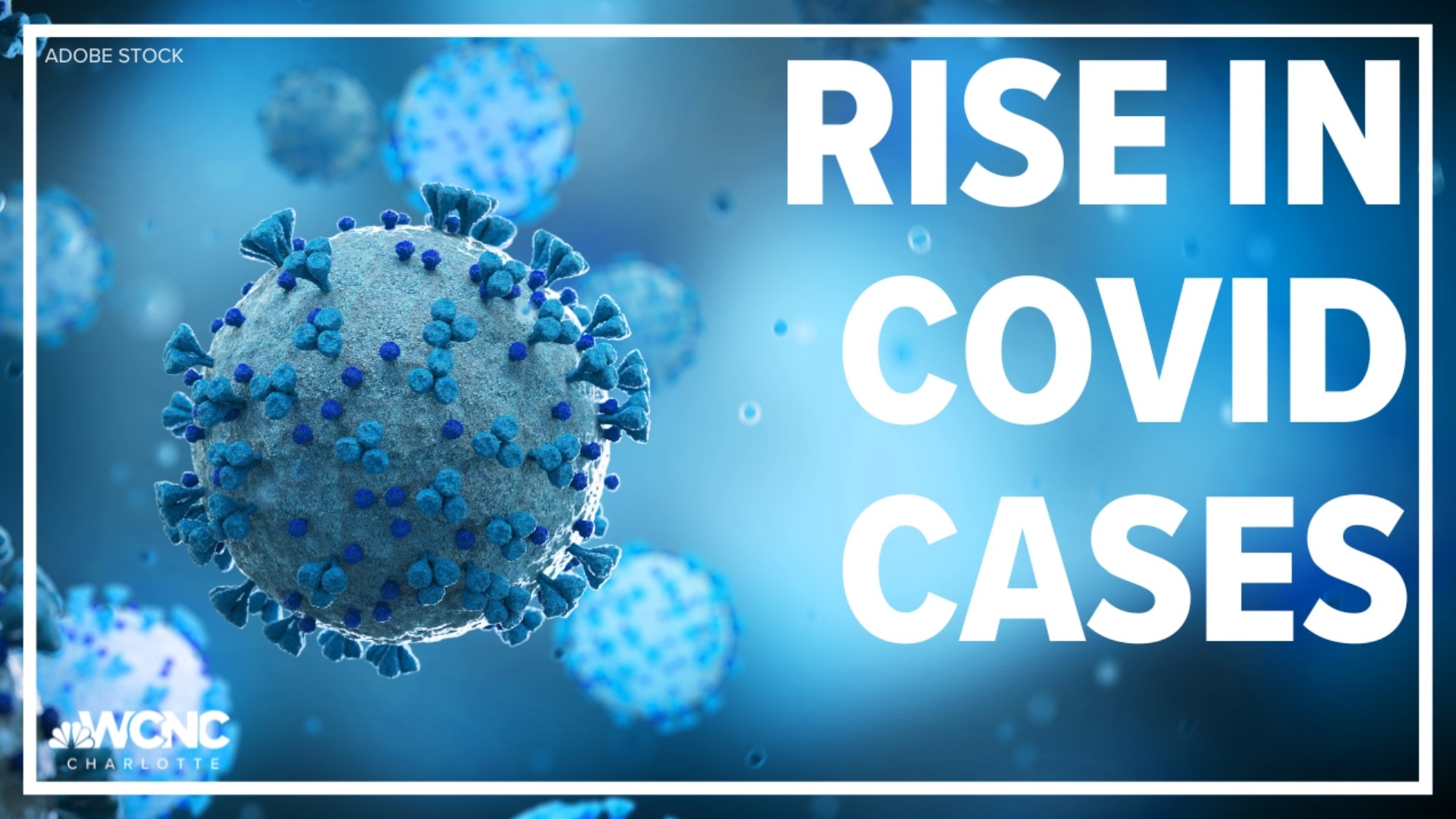CHARLOTTE, N.C. — North Carolina is getting into another COVID-19 wave following the winter holidays, although the surge does not appear to be as strong as in winters past, doctors say.
The latest data from state health officials show viral particles in the wastewater, reported cases, hospital admissions, and ER visits with coronavirus symptoms have all been trending up since around Thanksgiving. Another update is expected Wednesday afternoon.
As more people fall ill to the virus, here are three main takeaways regarding the current COVID-19 situation.
More infectious, possibly less severe
Omicron subvariants BQ.1, BQ.1.1, and XBB.1.5 are the most common in the United States right now, according to the CDC's variant tracker. Health officials report the newest versions of the virus are likely the most transmissible ones yet, but also, potentially, less severe than prior strains.
Dr. David Priest, an infectious disease specialist with Novant Health, likens the trends to natural selection.
"What typically happens is these viruses spread because they have mutations in them that make them more transmissible, often because they bind to human cells more effectively -- sometimes because they replicate more quickly," Priest said. "And they spread because they're not as severe as the previous versions because, let's say, you get a variant that creates very, very severe disease. That might kill someone before they could spread it to a lot of people."
Doctors also say immunity from vaccination and prior infection are likely also playing a role in less severe symptoms.
People are still going to the hospital and dying
While this winter's COVID-19 wave is nowhere near as severe as years past, doctors say vulnerable groups are still getting severely ill with the virus, going to the hospital and dying.


Doctors say vulnerable groups include seniors, those not vaccinated or not up-to-date with the omicron-targeting booster, and those with underlying conditions.
"CDC data shows that the rate of COVID-related hospitalizations in unvaccinated adults, 65-years-of-age and older, was 13.5 times higher than those who received a bivalent booster," Priest said. "Those who've been vaccinated, but had not yet received the booster, were 2.5 times more likely to be hospitalized."
Mitigation still calls for testing, masking and isolating
Doctors urge those with mild symptoms to test using an at-home kit, or by going to the doctor, pharmacy or urgent care. They advise against going to the emergency room with mild symptoms, which can risk the spread of the virus to others and back up service.
CDC guidance still calls for isolation after a positive test. The isolation period is five days for mild symptoms. However, masking around others can last for ten days or until the person receives two negative results at least 48 hours apart.
Contact Vanessa Ruffes at vruffes@wcnc.com and follow her on Facebook, Twitter and Instagram.

